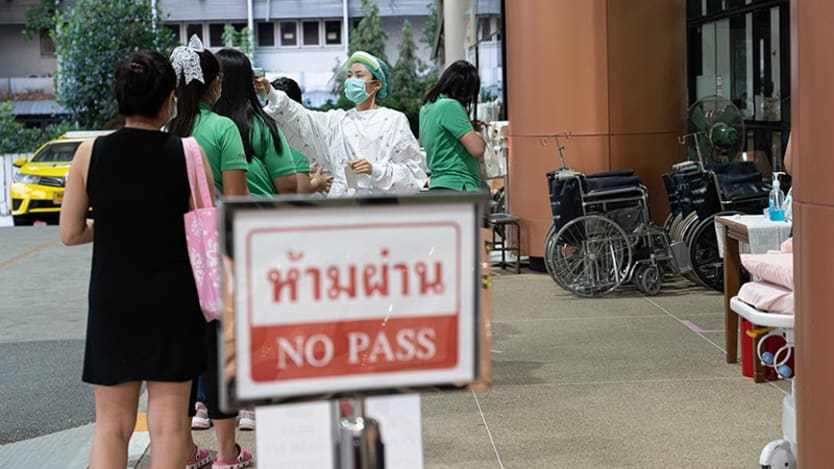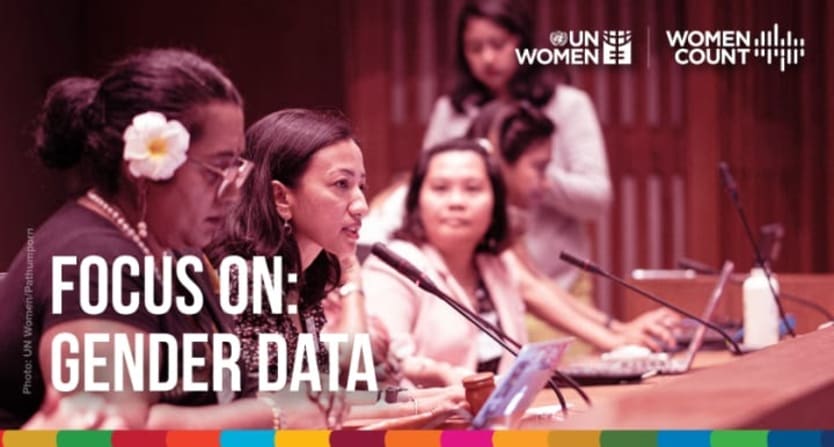
Any new and highly infectious pathogen triggers a world of worry, with a slew of questions to which there are no immediate answers. From HIV to Ebola and from severe acute respiratory syndrome to Middle East respiratory syndrome, the early days — even years — of an emerging infectious disease have researchers scrambling for clues to shed light on the unknown.
COVID-19 is no exception. How is it spread? How virulent is it? What medication could possibly work? How fast can a vaccine be developed and tested?
It is only through data, consistently and thoroughly collected and assessed, that we can inform eventual answers and solutions to effectively address the pandemic.
And for the data to be complete, it must be disaggregated by sex. In other words, we must fully learn how COVID-19 is affecting men and women — from both medical and socioeconomic perspectives.
But in Asia, the region where the novel coronavirus emerged, only three countries so far have shared complete data on infections and mortality by sex: China, Iran, and South Korea. Several other countries collect COVID-19 data by sex but, for various reasons, are not reporting it to the international statistical system.
Without knowing the ratio of males to females getting tested and treated for, and dying from, COVID-19, we are leaving lifesaving and economy-saving clues on the table.
Beyond sex breakdowns, other forms of gender statistics can also be helpful in shedding light on the profound effects of the COVID-19 pandemic. Are pregnant women able to seek the medical care they need at a time when health care systems are overwhelmed? Are women able to reach shelters or hotlines if exposed to violence at home? We simply do not know, and that is why gender statistics are important.
We have a profound need for sex-disaggregated data in lower- and higher-income countries alike. Women’s health and well-being are at serious risk without it — a disservice to the prosperity of all people — a fact agreed on by hundreds of government signatories to the Programme of Action adopted at the “International Conference on Population and Development” in 1994 and to the Beijing Platform for Action adopted at the fourth World Conference on Women a year later.
Why sex-disaggregated COVID-19 data matters
Early evidence suggests more men die from COVID-19 than women. Comparing this case fatality ratio to the male-to-female infection ratio will yield critical clues. Some of the difference has to do with gender norms and sex-differentiated behavior, but there is likely a biological component, too. If women have similar infection but higher survival rates, women’s immune response can provide vital insights to COVID-19 treatment and vaccine development, which benefits everyone.
Sex-disaggregated data is also crucial to illuminating how the risks and efficacy of treatments and vaccines differ between men and women, including during pregnancy. But women are historically underrepresented in such testing.
At the same time, women’s societal roles put them at higher risk of COVID-19 infection. Women make up 70% of the global health workforce, with many working as nurses and midwives. Women also tend to bear the responsibility of caring for children, the elderly, or sick family members.
Sex-disaggregated data emerging from Italy and Spain shows that twice the number of female health workers are infected with COVID-19 compared with their male colleagues. This underscores the need for gender-equal caregiver protection against transmission — a finding that policymakers and hospital administrators would be wise to heed for the immediate and long-term sustainability of health systems.
Also, women have less access to health care and insurance than men and children in many cultures. In Pakistan, for example, less than 60% of women can make decisions about their own health care. If women can’t access health services, they are less likely to be tested and treated for COVID-19 and, as a result, could unwittingly spread the virus — including to those they care for. This is sadly ironic, given the dependence of health systems on female workers.
And in societies that place a lesser value on women’s health, they might be dangerously ill or dying at home from COVID-19 without medical attention. Official statistics do not usually account for these hidden cases and deaths abetted by gender discrimination.
All the while, women’s sexual and reproductive health is suffering. In many places, as female health workers fall ill and lockdown conditions extend, already scarce services are harder to reach. In turn, the world may witness a devastating increase in maternal morbidity and unwanted pregnancies, sexually transmitted infections, and infant mortality. Only quantitative and qualitative gender analyses using quality and robust data will spotlight COVID-19 causations and correlations.
We cannot win the race to beat COVID-19 if women are left behind
But it is not too late. Simple metrics such as sex, pregnancy status, ethnicity, and age should be built into routine reporting procedures for all COVID-19 test results and deaths, as well as treatment and vaccine trials. And national statistics offices should stand ready to analyze, interpret, and publish the data in line with international statistical standards to ensure comparability. Then, evidence-based decisions can be taken through a gender lens, which is proven to be more effective for everyone.
Understanding the secondary impacts of COVID-19 will also require gender data, given the unequivocally disparate burden that will be shouldered by women, as occurred with Ebola and similar crises. For example, the additional time that women will spend on unpaid care work, the fallout from unmet sexual and reproductive health needs, or increased gender-based violence. These are but a few of the many ramifications with a disproportionate effect on women.
Decision-makers must put in place immediate policies and protocols prioritizing and sharing gender statistics as a key pillar of pandemic response.
Ultimately, sound public health policy and action, including data collection and reporting, must be grounded in gender equality and human rights. This is clear in the foundations and outcomes of both the “International Conference on Population and Development” and the World Conferences on Women.
These principles must be applied to how we respond to COVID-19. The effects and impact on women must be fully tracked and measured. This will lead to better outcomes in tackling this pandemic and ultimately ensuring women are not left behind.
We need COVID-19 gender data. The clock is ticking.
Devex, with support from our partner UN Women, is exploring how data is being used to inform policy and advocacy to advance gender equality. Gender data is crucial to make every woman and girl count. Visit the Focus on: Gender Data page for more. Disclaimer: The views in this article do not necessarily represent the views of UN Women.






